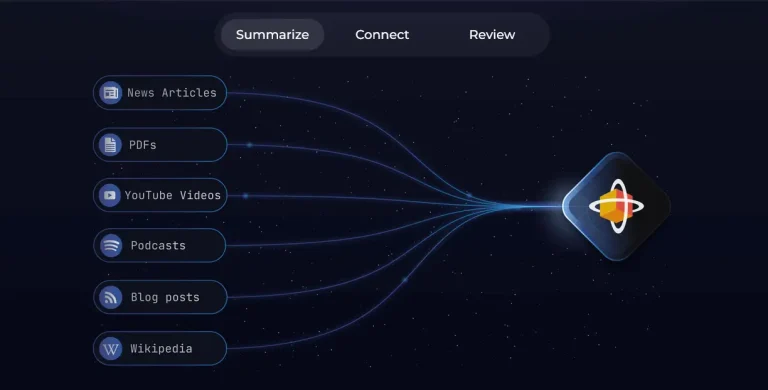The corporate world is continuously evolving, driven by advancements in technology. Among these, Artificial Intelligence (AI) stands out as a transformative force, revolutionizing various business operations. From enhancing productivity to improving decision-making processes, AI tools are becoming indispensable in the modern corporate environment. In this comprehensive article, we delve into the myriad uses of AI tools in the corporate world, highlighting their significance and impact.
Enhancing Productivity with AI Tools
Automating Routine Tasks
One of the most significant benefits of AI tools is their ability to automate repetitive and mundane tasks. By automating processes such as data entry, scheduling, and email management, AI tools free up valuable time for employees to focus on more strategic activities. For instance, Robotic Process Automation (RPA) can handle high-volume, repeatable tasks, ensuring accuracy and efficiency.
Improving Workflow Management
AI-powered workflow management systems can analyze work patterns and identify bottlenecks, suggesting improvements to streamline operations. Tools like Trello and Asana now incorporate AI to optimize task allocation, predict project timelines, and ensure that resources are used efficiently.
Advancing Decision-Making
Data Analysis and Insights
In the corporate world, data is king. AI tools can analyze vast amounts of data quickly, providing actionable insights. Machine Learning (ML) algorithms can identify trends and patterns that might be missed by human analysts. This capability is particularly valuable in areas such as market research, customer behavior analysis, and financial forecasting.
Predictive Analytics
Predictive analytics, powered by AI, allows companies to forecast future trends and behaviors. By analyzing historical data, AI tools can predict market movements, customer preferences, and even potential risks. This foresight enables companies to make informed decisions, minimizing risks and capitalizing on opportunities.
Enhancing Customer Experience
Personalized Customer Service
AI tools have revolutionized customer service through personalization. Chatbots and virtual assistants, powered by Natural Language Processing (NLP), can interact with customers in real-time, providing instant responses and personalized recommendations. These tools enhance customer satisfaction by offering tailored solutions and reducing response times.
Customer Behavior Analysis
AI tools can track and analyze customer interactions across various touchpoints. By understanding customer behavior, companies can tailor their marketing strategies to meet individual needs. Tools like Google Analytics and HubSpot use AI to provide deep insights into customer journeys, helping companies create more effective marketing campaigns.
Optimizing Human Resources
Recruitment and Talent Management
AI tools are transforming the recruitment process by streamlining candidate selection. Resume screening software, powered by AI, can quickly sift through thousands of applications, identifying the best candidates based on predefined criteria. Additionally, AI can help in talent management by predicting employee performance and identifying areas for development.
Employee Engagement and Retention
AI tools can monitor employee engagement levels and provide insights into factors affecting morale. By analyzing data from surveys, feedback forms, and other sources, AI can suggest interventions to improve job satisfaction and retention rates. Tools like Workday and SAP SuccessFactors incorporate AI to enhance employee experience.
Improving Marketing Strategies
Targeted Advertising
AI tools enable hyper-targeted advertising by analyzing consumer data and behavior. By understanding the preferences and needs of different customer segments, companies can create personalized ad campaigns that resonate with their audience. Tools like Facebook Ads Manager and Google Ads use AI to optimize ad placements and maximize ROI.
Content Creation and Optimization
AI-powered tools are now capable of generating and optimizing content. Platforms like Grammarly and Copysmith use AI to create engaging content tailored to specific audiences. Additionally, AI can optimize existing content for search engines, improving visibility and driving organic traffic.
Enhancing Cybersecurity
Threat Detection and Prevention
AI tools play a crucial role in enhancing cybersecurity by detecting and preventing threats in real-time. Machine learning algorithms can identify unusual patterns and behaviors, flagging potential security breaches before they cause harm. Tools like Darktrace and CrowdStrike use AI to provide advanced threat protection.
Fraud Detection
AI is also instrumental in fraud detection. By analyzing transaction patterns and behaviors, AI tools can detect anomalies that may indicate fraudulent activity. Financial institutions and e-commerce platforms use AI to safeguard against fraud, ensuring secure transactions for their customers.
Streamlining Supply Chain Management
Inventory Management
AI tools are revolutionizing inventory management by predicting demand and optimizing stock levels. Machine learning algorithms can forecast sales trends, helping companies maintain optimal inventory levels and reduce carrying costs. Tools like Llamasoft and ClearMetal leverage AI for efficient supply chain management.
Logistics and Delivery Optimization
AI tools can optimize logistics and delivery operations by analyzing various factors such as traffic patterns, weather conditions, and delivery routes. By improving route planning and delivery schedules, AI helps companies enhance efficiency and reduce operational costs. Companies like DHL and FedEx are already using AI to streamline their logistics operations.
Facilitating Financial Management
Financial Forecasting
AI tools assist in financial forecasting by analyzing historical data and predicting future financial performance. These tools can identify trends and provide insights into revenue, expenses, and profitability, helping companies make informed financial decisions. Tools like Adaptive Insights and Anaplan use AI to enhance financial planning.
Automated Accounting
AI is transforming accounting by automating routine tasks such as invoicing, expense tracking, and financial reporting. By reducing manual efforts, AI tools minimize errors and improve accuracy. Tools like QuickBooks and Xero incorporate AI to streamline accounting processes.
In conclusion, AI tools are redefining the corporate landscape, offering numerous benefits across various domains. From enhancing productivity to optimizing decision-making and improving customer experience, the applications of AI in the corporate world are vast and varied. As technology continues to advance, the integration of AI tools will become even more critical for companies seeking to stay competitive and thrive in the modern business environment.




